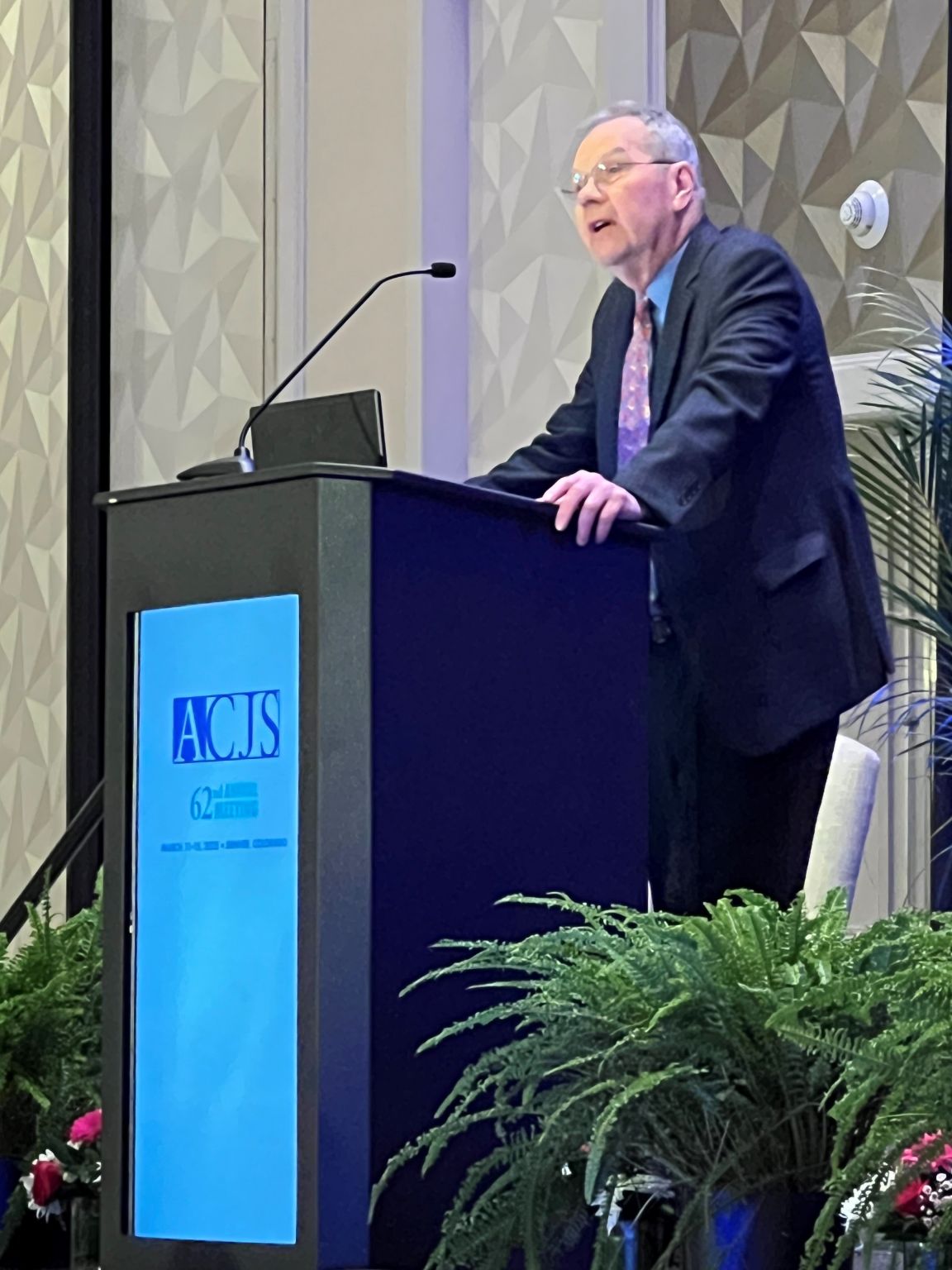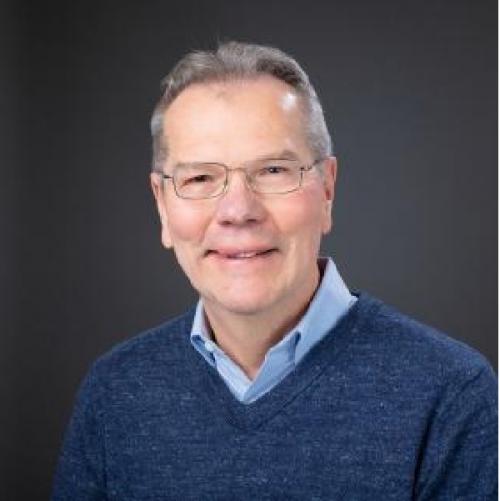John H. Laub, Distinguished University Professor Emeritus in the Department of Criminology and Criminal Justice at the University of Maryland, delivered the keynote address at the 62nd Annual Meeting of the Academy of Criminal Justice Sciences in March 2025. His talk, “Translational Criminology: Its Origins, Current Developments, and Future,” focused on the ongoing need to connect research with practice in meaningful and practical ways.
 “If we want to prevent and reduce crime, scientific discoveries must be translated into policy and practice,” Dr. Laub stated, emphasizing the importance of applying research findings to real-world challenges. He highlighted the role of strong theoretical frameworks and the necessity of collaboration between researchers and practitioners.
“If we want to prevent and reduce crime, scientific discoveries must be translated into policy and practice,” Dr. Laub stated, emphasizing the importance of applying research findings to real-world challenges. He highlighted the role of strong theoretical frameworks and the necessity of collaboration between researchers and practitioners.
Drawing on his experience as Director of the National Institute of Justice, Dr. Laub discussed initiatives like the Harvard Executive Sessions on Policing, where “leading police executives and researchers come together on a regular basis to tackle the major issues facing the field.” He also addressed current challenges, including data limitations and the politicization of science, underscoring the need for trust and sustained partnerships.
Dr. Laub concluded by reaffirming the goal of translational criminology: “The goal of translational criminology is transformational change in policy and practice.”
Read the full keynote address here: John Laub 2025 ACJS Today - Translational Criminology (PDF)
Photo courtesy of the LEMIT – Bill Blackwood Law Enforcement Institute of Texas LinkedIn page.



